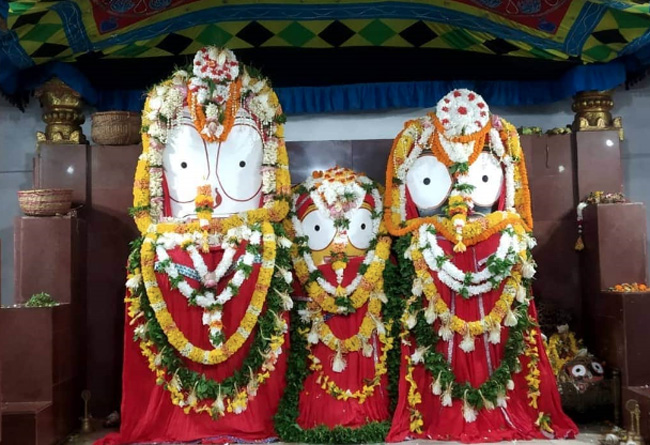Bhubaneswar: In Odisha, Rakhi Purnima is celebrated with a unique cultural blend, as it coincides with Gamha Purnima. This dual celebration highlights both the traditional bond between siblings and the agricultural heritage of the state.
Gamha Purnima is a major festival in Odisha that celebrates the birth of Lord Balabhadra, the elder brother of Lord Jagannath. Shree Balabhadra is revered as the god of farming and agriculture, and his birthday holds great significance for the state’s agrarian communities.
On this day, farmers honor their cattle, which are essential to their livelihood. The cows and bullocks are washed, decorated with flowers and garlands, and even have rakhis tied to their horns.
Special dishes are prepared for them as a gesture of gratitude. This tradition underscores the deep respect for nature and the interconnectedness of life in Odia culture.
While the celebration is intertwined with Gamha Purnima, the core ritual of Raksha Bandhan remains central. Sisters tie a sacred thread, or rakhi, on their brothers’ wrists, praying for their well-being, long life, and prosperity. In return, brothers promise to protect their sisters from all harm and present them with gifts. The exchange of sweets and gifts reinforces the loving bond between siblings.
A particularly unique aspect of Rakhi Purnima in Odisha is its connection to the Shree Jagannath Temple in Puri. Special rakhis are prepared by the Patara Bisoi servitors for the divine siblings—Lord Jagannath, Lord Balabhadra, and Devi Subhadra. It is Devi Subhadra who ties the rakhis on her brothers’ wrists, with specific colors designating each deity (red and yellow for Jagannath, and blue and violet for Balabhadra).
The festival also has historical ties to Odisha’s martial heritage. It was traditionally a day when the Paikas, the state’s warrior class, would begin their training in new combat techniques. A traditional game called Gamha Dian, or “the Gamha Jump,” is sometimes played in rural areas. Young people jump to grab gifts tied to a rope, adding a competitive and celebratory element to the day. While these traditions are gradually fading in some areas due to modernization, the spirit of the festival continues to thrive.
In modern times, the celebrations have adapted, with families using technology to connect with siblings who live far away. Digital rakhis and virtual gifts are common, ensuring that the bond of protection and love can be honored regardless of distance.


